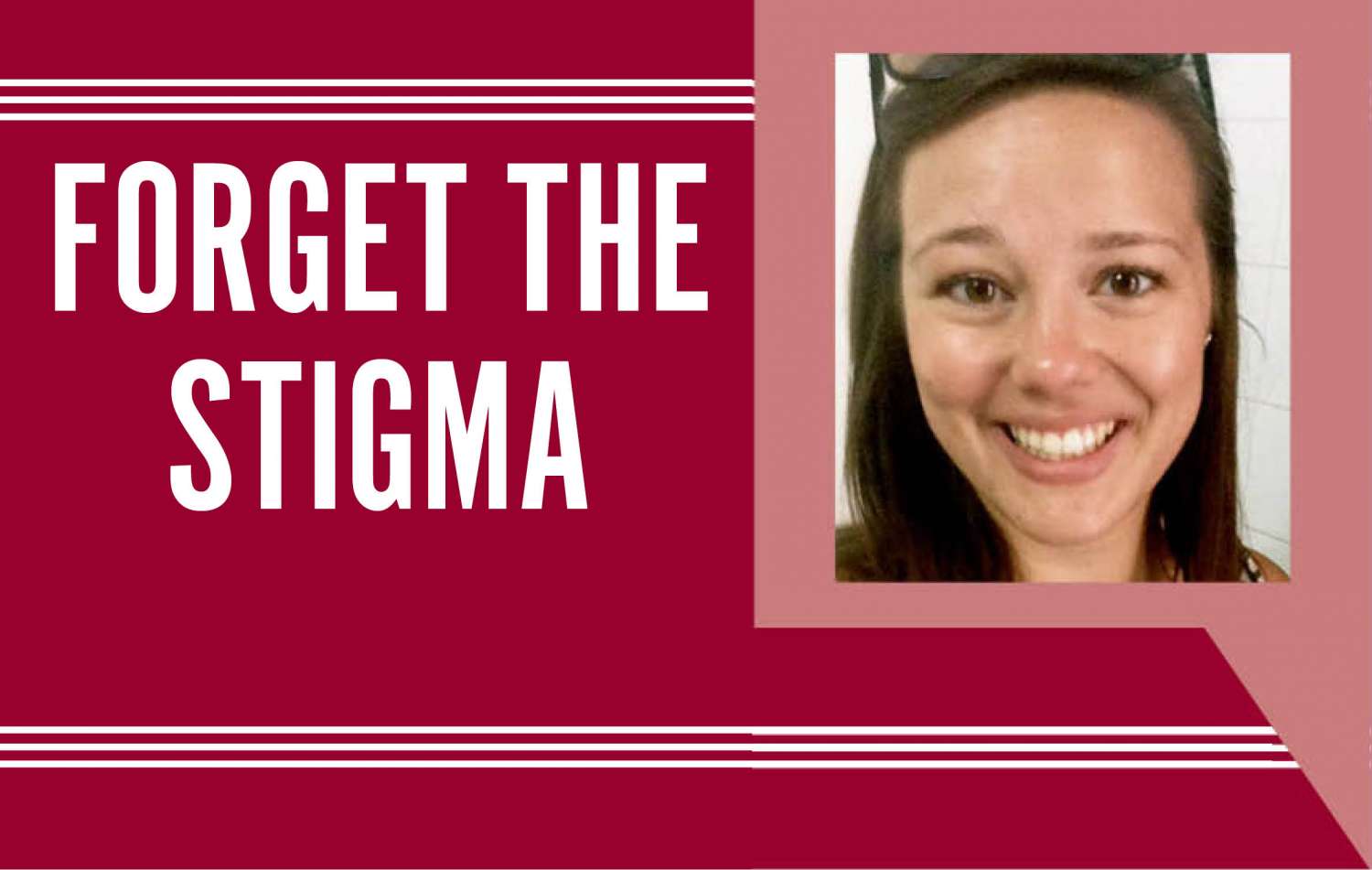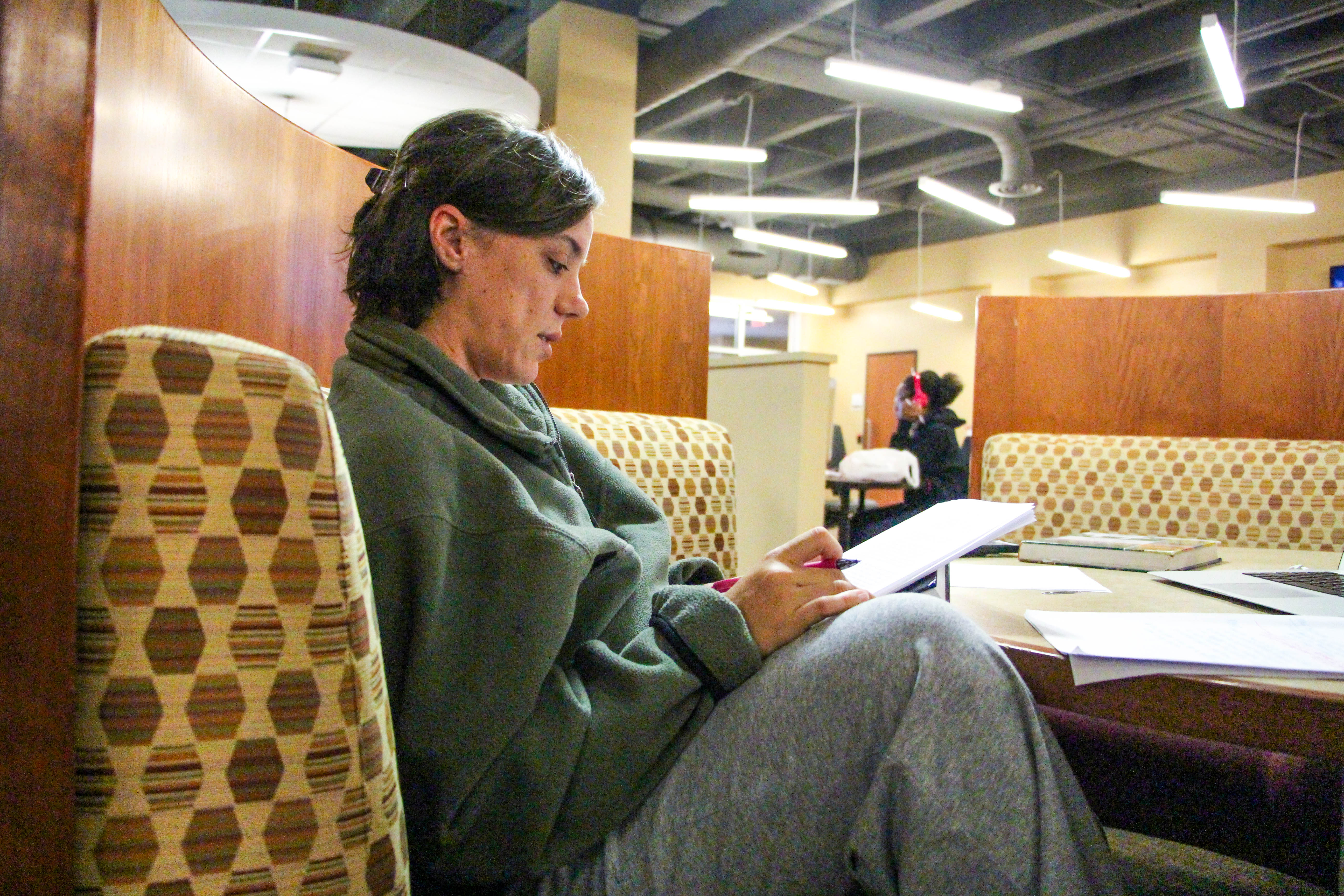In 1990, Congress designated the first full week of October as Mental Illness Awareness Week. Mental Illness is incredibly prevalent on college campuses, but those suffering from mental illness often feel stigmatized.
The American College Health Association (ACHA) reports that one in four college students has been diagnosed or treated for a mental illness in the past year, nearly 50 percent of students felt hopeless in the last 12 months, over 50 percent felt overwhelming anxiety, over 30 percent felt so depressed it was difficult to function, and eight percent seriously considered suicide. Yet, the number one reason that college students do not seek treatment for mental illness or mental health concerns is because of the stigma that comes along with it. With many students struggling in one form or another with mental illness it is hard to understand why mental illness is still stigmatized on college campuses.
Huffington Post blogger, Emily Grossman, went so far as to call mental illness the “Scarlett Letter” of our time. She shared how difficult her college experience was living with bipolar disorder saying that it was difficult to maintain friendships and that many people stayed away from her. Her story is not unique. It can be difficult to address mental illness. However, addressing it only becomes more difficult if a person suffering feels ashamed. The stigma that frequently accompanies mental illness often causes those suffering to stay silent and leave their mental illness untreated. According to the National Alliance on Mental Illness, approximately 40 percent of college students suffering from a diagnosable mental illness did not seek treatment and 57 percent of them did not request help from their school.
If left untreated, mental illness can have serious consequences. A report by the ACHA shows that students credit depression and anxiety as one of the top causes for poor academic performance and I know from personal experience that depression can wreak havoc on academic life and have long lasting consequences. Additionally, without adequate treatment for mental illness, students are more likely to drop out of college or to be unemployed than those who are not suffering from mental illness. Most alarming, however, is that if mental illness goes untreated it can also lead to suicide; suicide is among the leading causes of death on college campuses and untreated depression is the number one cause of suicide.
The transition into college can be very difficult. Some students may feel lonely, hopeless, anxious, depressed, exhausted, or stressed. And while the leading mental illnesses on college campuses are depression and anxiety, more severe mental illnesses can appear during college as well; approximately 75 percent of severe, persistent mental illnesses begin by age 24.
Mental illness is a serious condition and should be treated as such. Most people wouldn’t dream of thinking less of a person who suffers from the common cold, diabetes, or cancer. So, why is mental illness frequently associated with being a lesser quality person?
I’m calling on KSU students to help end the stigma placed on those suffering from mental illness. Whether you or someone you know if suffering from mental illness, we can all work together to make sure that people afflicted have the necessary support they need on campus.
If you are suffering from mental illness, know that KSU has a plethora of resources to help. Marcy Stidum, the Associate Director of Counseling and Psychological Services, says that, “everything is confidential…we abide by Georgia Law and professional standards and ethics codes.” In other words, if you feel uncomfortable about other students knowing that you may be struggling with mental illness, your confidentiality will not be compromised if you seek treatment at KSU. Student Success Services also offers a walk in service called “Let’s Hoot” that allows students to talk with a counselor on a first come first serve basis Monday through Thursday from 12:30 to 3:30. This program gives students the opportunity to talk with a counselor for around 15 minutes to address any issues they may have. Although it is not a substitute for formal mental health treatment it may be a good first step in addressing any mental health issues that you may have. Students enrolled in classes can also seek counselor treatment, by appointment.




